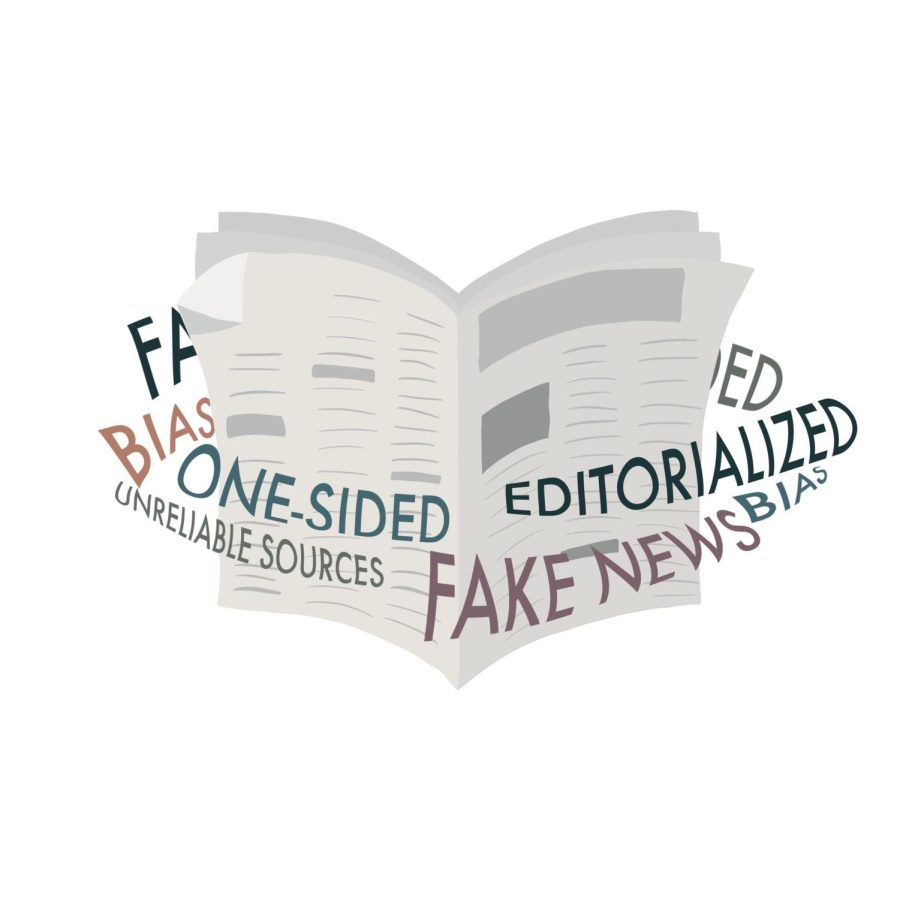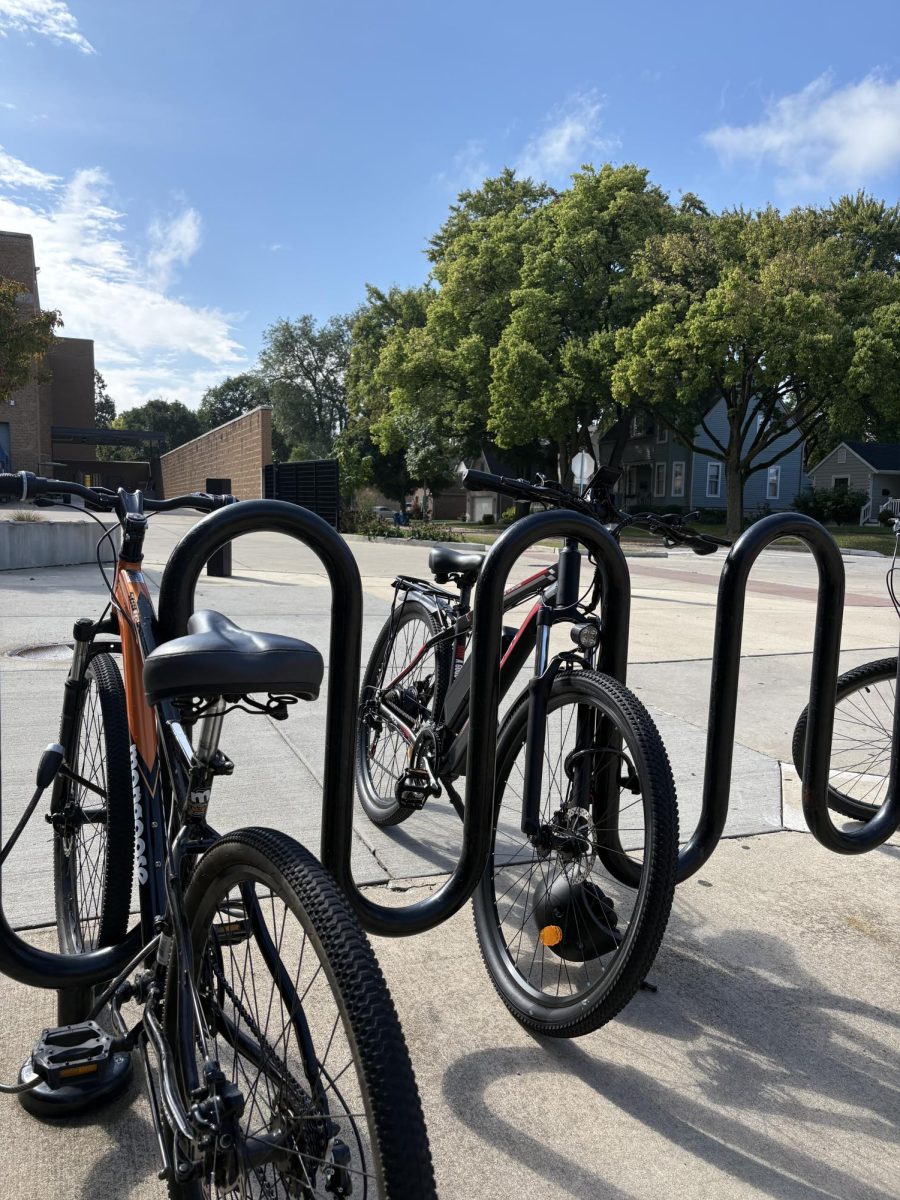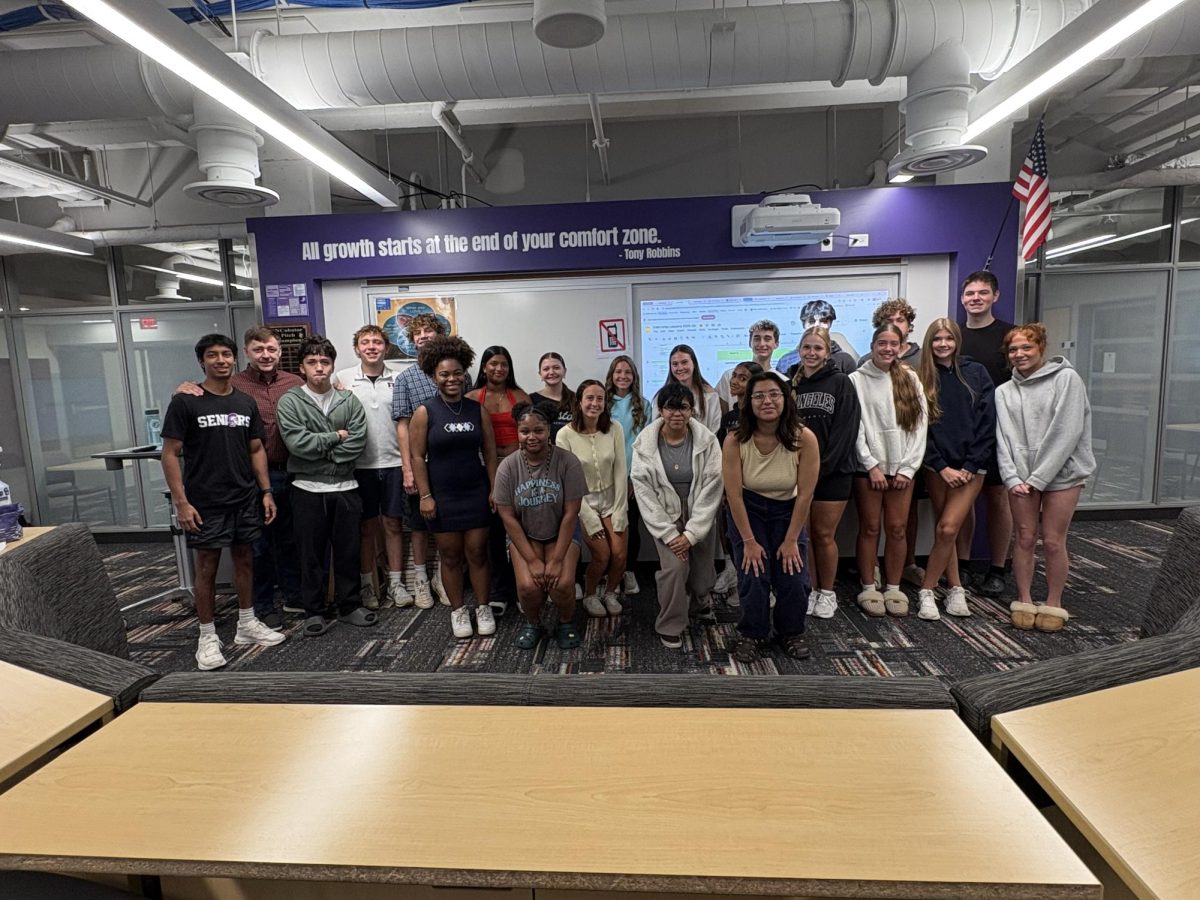Media literacy: Mock newspaper reaches community mailboxes
SWARMING COMMUNITIES: Several harmful and misleading components found in local newspapers.
November 16, 2022
In recent weeks, registered Illinois voters have stepped onto their porches to find a copy of the DuPage Policy Journal sitting on their doorstep. Its front page wears traditional newspaper features– a clear nameplate, bold headlines, and a colorful infographic. A deeper skim reveals that none of the front page stories contain author bylines and instead say “By LGIS News Service,” (Local Government Information Service) the parent company of the 20 newspaper branches riddled with opinion-heavy headlines and incorrect data. The Omega decided to investigate the reliability of this publication.
DGN librarians preach news literacy with in-class lessons and digital resources. According to the News Literacy Project, this is an integral part of American life, and achieving news literacy will ultimately create a stronger democracy.
Know Your Mail
According to an NPR article, LGIS publications have been around for several elections and have more recently spread across the state. DuPage Policy Journal is just one edition of the publication, with newspapers for each county like Chicago City Wire, Kankakee Times, the list goes on.
“Republican political strategist Dan Proft Crafted the mailings. He runs a political action committee (PAC) called ‘Play by the Rules’ that has been purchasing ads in recent weeks to criticize Pritzker and Democrats. The PAC has received significant donations from billionaire Dick Uihlein, with more than $20 million contributed since the primary.” reported a recent article by NBC Chicago.
A quick Google search can prove data in the DuPage Policy Journal wrong. This spread of misinformation is exceptionally threatening with the Midterm election Nov. 8.
“When you get one of these in the mail, you should know that this is not a real newspaper,” said Gov. JB Pritzker in an interview with NBC Chicago. “It isn’t even marked properly as campaign material. It’s put out by this right-wing network of newspapers that we all know exists in Illinois, and they’re trying to take over where local, real journalism unfortunately has receded.”
A recent issue of the DuPage Policy Journal, dated Oct. 3-8, includes a column from the publication, titled “A challenge to our critics.”
“Provide a single, specific example of a story that is inaccurate, misleading, or even unfair in your opinion and we will address and/or correct it,” reads the first sentence of the article.
However, DuPage Policy Journal’s recent issue from Oct. 3-8 includes a page two headline stating, “CPS spending hits record $29k per student as enrollment shrinks, outcomes plummet.” However, the Omega contacted Chicago Public Schools (CPS) Office of Communications by email in hopes of gauging the accuracy of this data. CPS Executive Director Mary Ann Fergus responded within a few hours, referring us to the Illinois Report Card which reported an average spending of $17,000 per student in 2022.
“We can’t speak to the reporting methods of this particular outlet. As a high school student, you were able to find your way to the CPS Communications Department, with contact information provided on the CPS website, and get an answer within a couple of hours,” Fergus said. “The vast majority of reporters reach out to us (specifically our Media Relations team) for comment and fact-checking before filing a story.”
An article published Oct. 21 in the DuPage Policy Journal advertises a misleading headline, “Casten: I’m in favor of ‘decriminalizing minor possession’ of opioids.” In an interview with the Daily Herald posted Oct. 10, U.S. Rep. Sean Casten claimed to be in support of federally decriminalizing small amounts of cannabis, not opioids.
“We should not be putting people in jail for low-level drug offenses,” Casten said in the interview.
According to the Drug Enforcement Administration, marijuana is a schedule I substance, while opioids are a schedule II/IIN substance.
Dupage Policy Journal also published an article regarding senior Tabitha Irvin’s tennis success during the week of Sept. 16. However this was incorrect, as Irvin was injured and out of competition since Sept. 4. The Omega reached out to the DuPage Policy Journal by email Oct. 19 and Oct. 25 in efforts to fix this mistake and received no response or correction.
To counter the DuPage Policy Journal, registered Illinois voters received a red piece of paper during the weekend of Oct. 29 in the mail with “SCAM ALERT. Don’t be fooled by phony newspapers,” printed largely on the front. The mailing also includes what creators say are “the Facts,” however this paper is from the Democratic Party of Illinois, and also carries bias.
Journalism Expects Standards
According to the Society of Professional Journalists (SPJ), ethical journalists should follow a Code of Ethics and act with integrity, providing accurate and fair information. This ensures that publications are accountable and transparent.
“Journalists should: Take responsibility for the accuracy of their work. Verify information before releasing it. Gather, update and correct information before releasing it,” reads the SPJ Code of Ethics.
By publishing incorrect data and failing to fix these mistakes, the DuPage Policy Journal has violated the Code of Ethics in several aspects. The Illinois Press Association (IPA) released an official statement regarding the DuPage Policy Journal. The IPA explained that because they protect the First Amendment of freedom of speech and freedom of the press, practicing news literacy and ruling out some “newspapers” is crucial. The IPA supports the education of student journalists and holds camps, provides awards, and distributes grants for school newspaper publications.
“The IPA cautions readers to become as news literate as possible; that is, to try to determine the source behind the news and information they receive and to question the legitimacy, integrity, and intent of both the source and the message,” read the IPA statement.
The official statement goes on to describe how it’s become difficult to distinguish legitimate news and political propaganda, and the DuPage Policy Journal and its 12 wings are not a part of the IPA.
“People are continually inundated with messages from this growing number of platforms and it is often unclear as to the source or the integrity of the message or the platform. The newspapers published under the banners of Chambana Sun, DuPage Policy Journal, East Central Reporter, Kankakee Times, Lake County Gazette, McHenry Times, Metro East Sun, North Cook News, Rock Island Today, Sangamon Sun, SW Illinois News, West Central Reporter, West Cook News, are not members of the Illinois Press Association, nor are they eligible for membership in the Association,” read the IPA statement.
DGN Library Provides Resources
Each of the seven librarians in District 99 has a master’s in library science and make it a priority to educate students on finding reliable websites for projects or essays. On dgnlibrary.org, the tab titled “Research” contains various websites and databases to aid in determining reliable sources.
“We encourage students to go to the databases first where we have ProQuest. It’s information from five of the biggest newspapers in the country. Even within the database, you have to vet your sources to decide if it’s a news piece or editorial,” library department chair Allison Bava said.
The library department is also exploring an extension called Stopaganda which shows factuality and political lean in every Google search result.
“We’re going to advertise it every time we teach research this year. If it works really well, we’re going to see if we can get the extension pushed out to everybody. But first, we want to make sure it’s something we use and know it works well,” Bava said.
The library website also encourages using the acronym TRAPPED to evaluate reliable sources. By using TRAPPED, students assess a source’s type, relevance, authority, purpose, point of view, evidence, and data.
“Two amazing librarians and a New Trier Township High School created it. When it was presented four years ago, we loved that it’s very thorough. With TRAPPED, we’re teaching students to vet their sources and then be able to turn that into an annotated bibliography. I’ve used other acronyms and that one is the best,” Bava said.
In our political climate, Bava believes everyone could use a lesson in identifying fake news.
“We really try to make sure we teach research lessons in ninth and tenth grade. In eleventh grade we do a lot of reinforcement. It’s not just teeangers, it’s all of us,” Bava said. “We’re not a society where we seek out news like we used to. It comes to us through our social media feed and it’s tailored to each person based on what they searched before.”
With several resources at DGN, students are encouraged to evaluate their sources and avoid political lean. By mastering this, students will be able to avoid false publications and not fall victim to fake news mailings or commercials.

























